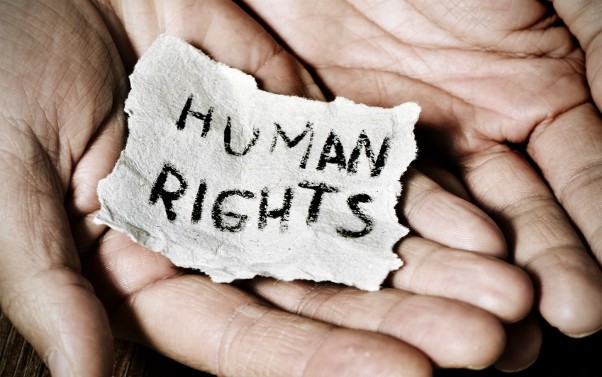
The government has confirmed that the Liberty Protection Safeguards (LPS) will not be implemented in April 2022, adding that it is “aiming to launch” a long-awaited consultation on the Deprivation of Liberty Safeguards (DoLS) replacement early in the new year.
The acknowledgment that the target date will not be met is a formality, with the need for ministers to consult on draft regulations and a code of passage, and the former to pass through Parliament, rendering the proposed timescale impossible.
But the news, conveyed via a letter to LPS national steering group members, provides some clarity to local authorities and other organisations which until now have been forced to continue preparing for a possible April implementation.
The LPS had originally been intended to come into force in October 2020, before the impact of the coronavirus pandemic on health and social care services led to the revised target of next spring.
In the government’s letter, the Department of Health and Social Care’s deputy director for service quality Helen Tabiner said it was not likely that a fresh implementation target would be set at the time the consultation begins.
“The LPS are a complicated set of reforms and we expect that a wide range of stakeholders will submit detailed consultation responses about our plans,” Tabiner wrote. “The government will need time to consider those carefully once the consultation has closed, before making final decisions about the design of the LPS and plans for implementation, including future funding plans.
“We think it would be premature to set a new implementation date or confirm any funding to support implementation before we have been able to consider responses to the consultation,” she added.
Despite the consultation being slated to arrive soon after the new year, the DHSC letter added the caveat that this was dependent on the ongoing impact of the Omicron Covid-19 variant.
‘Hard to galvanise implementation planning’
Responding to the letter, Lorraine Currie, the chair of the national DoLS lead group said it was a case of “we asked, and we got”.
Currie had previously described the lack of formal cancellation of the April 2022 target as “incredibly difficult and frustrating” and called on the government to clarify that organisations did not need to continue urgently planning towards the date.
But Currie said that the lack of any clarity on when a fresh date would be set would make it “very hard to galvanise implementation planning and support for a new scheme, among the many other demands on social care”.
“How can this be prioritised when other pressing matters do have dates and deadlines?” she asked.
More on the Liberty Protection Safeguards
Liberty Protection Safeguards certain to be delayed again but no word yet on new timeframe
Government ditches controversial role for care home managers under Liberty Protection Safeguards
Claire Webster, interim service manager for North Yorkshire council’s MCA/DoLS team, said she was “thankful” for the official confirmation of the delay.
“While we understand we no longer need to work towards April implementation, there remains much still unknown about LPS and the implementation requirements, and hope that a new timeline will be given as soon as possible and that it will provide enough notice and time to understand the details contained within the yet-to-appear codes of practice,” she added. “I think implementation needs to be considered alongside Mental Health Act reform and Human Rights Act review, to ensure that the relevant safeguards are provided to people as intended.”
‘Wise or worrying?”
Currie questioned whether the lack of any new target date was “wise or worrying” in the light of the government’s planned reforms to the Human Rights Act.
The government implicitly criticised the landmark Cheshire West judgment – which lowered the threshold for a deprivation of liberty, leading to a vast increase in cases – as it set out its plans to replace the Human Rights Act 1998 with a “bill of rights”. It cited the case as an example of public policy priorities and decision-making affecting public expenditure shifting from Parliament to the courts.
“While we wait for news, for replacement schemes, for future direction, people remain potentially unlawfully deprived of liberty,” Currie said. “We have numerous unanswered questions right now, mainly how long we can continue to prop up a system that everyone seems to agree is not fit for purpose but has to try its best to provide liberty protection to hundreds of thousands of people – when it was designed for 20,000 at its height.”
A Department of Health and Social Care spokesperson said: “The Deprivation of Liberty Safeguards (DoLS) system protects the human rights of adults in hospitals and care homes and ensures vulnerable people are not being unnecessarily detained. It is vital these systems are kept up to date and work for both those they serve and the social care sector.”
The spokesperson added that the DHSC would “launch a public consultation on an updated system as soon as possible in the new year.”



 Bournemouth, Christchurch and Poole
Bournemouth, Christchurch and Poole  Hampshire County Council
Hampshire County Council  Lincolnshire County Council
Lincolnshire County Council  Norfolk County Council
Norfolk County Council  Northamptonshire Children’s Trust
Northamptonshire Children’s Trust  South Gloucestershire Council
South Gloucestershire Council  Wiltshire Council
Wiltshire Council  Wokingham Borough Council
Wokingham Borough Council  Children and young people with SEND are ‘valued and prioritised’ in Wiltshire, find inspectors
Children and young people with SEND are ‘valued and prioritised’ in Wiltshire, find inspectors  How specialist refugee teams benefit young people and social workers
How specialist refugee teams benefit young people and social workers  Podcast: returning to social work after becoming a first-time parent
Podcast: returning to social work after becoming a first-time parent  Podcast: would you work for an inadequate-rated service?
Podcast: would you work for an inadequate-rated service?  Family help: one local authority’s experience of the model
Family help: one local authority’s experience of the model  Workforce Insights – showcasing a selection of the sector’s top recruiters
Workforce Insights – showcasing a selection of the sector’s top recruiters 

 Facebook
Facebook X
X LinkedIn
LinkedIn Instagram
Instagram
Well, I agree with Ms. Currie as we have not seen our P for many years as a result of the unworkable MCA 2005. P’s Capacity was fabricated {has full capacity} to promote No Contact but, P has been arrested again and is properly reassessed this time. The conclusion is that P lacks capacity in all areas.
Presently P is under DOLS, so how could P ever have had full capacity or has full capacity?
We are cruelly left out from P’s criminal proceedings and they misled and say “P does not want his family involved” while P does know the difference between Right and Wrong.
It is a case of the LA, the NHS, and advocates “abusing their powers” with false reports/assessments to fool Judges but, it has all backfired and they now refuse to apologize.
We robustly beckon the LPS’s implementation.